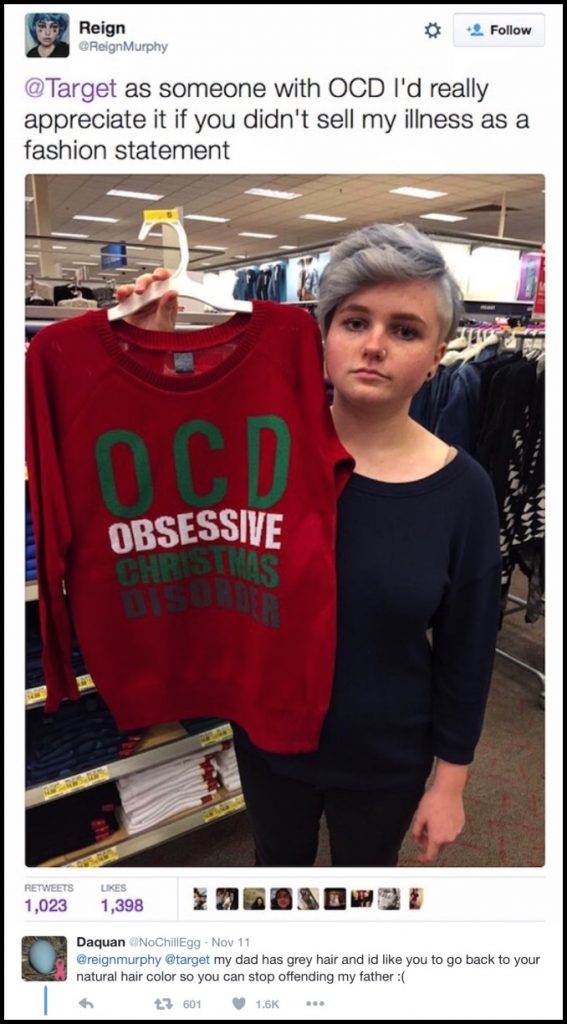In today’s digital age, social media has become a powerful tool for individuals to share their opinions and spark conversations. Two recent incidents involving Target, a leading clothing retailer, demonstrate the impact of public opinion on corporate decisions.

Firstly, a woman named Reign Murphy took to Twitter to express her disapproval of a sweater design that she believed was insensitive to people with Obsessive-Compulsive Disorder (OCD). The design read, “OCD Obsessive Christmas Disorder,” which Reign felt trivialized a serious psychological condition affecting millions of Americans. Her tweet generated a mixed response, with some people supporting her stance while others found the design humorous.

In a separate incident, another woman was offended by t-shirts with labels like “bride,” “trophy,” and “Mrs.,” which she believed objectified women. She argued that these designs perpetuated harmful gender stereotypes and wouldn’t purchase them for her daughters.

Target’s response to these incidents highlights the importance of listening to public opinion. While the company acknowledged the concerns, they also clarified that the designs were not intended to be offensive. In a statement, Target spokesperson Jessica Carlson apologized to those who were offended and assured that the products would remain on the shelves.
These incidents demonstrate the power of social media in shaping public discourse and influencing corporate decisions. As individuals, we have the ability to raise our voices and spark conversations about issues that matter to us. By doing so, we can create a more empathetic and inclusive society, one tweet at a time.


